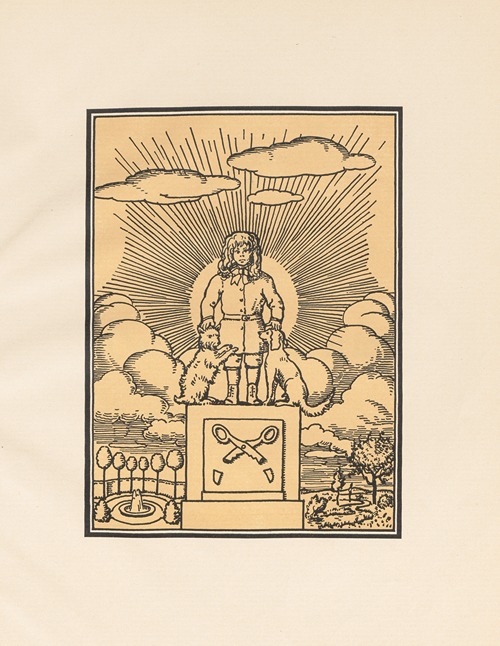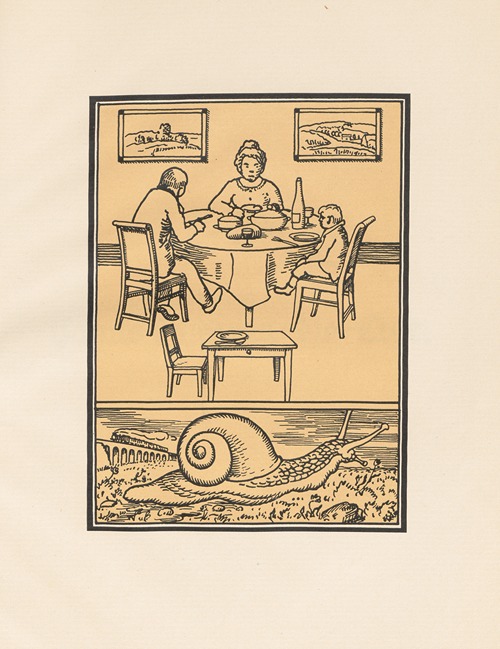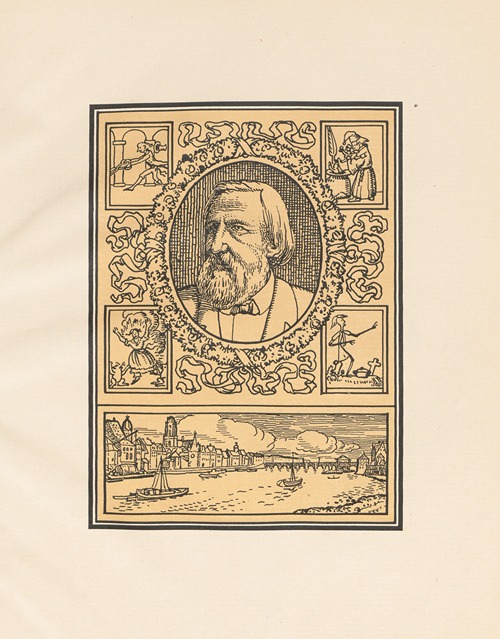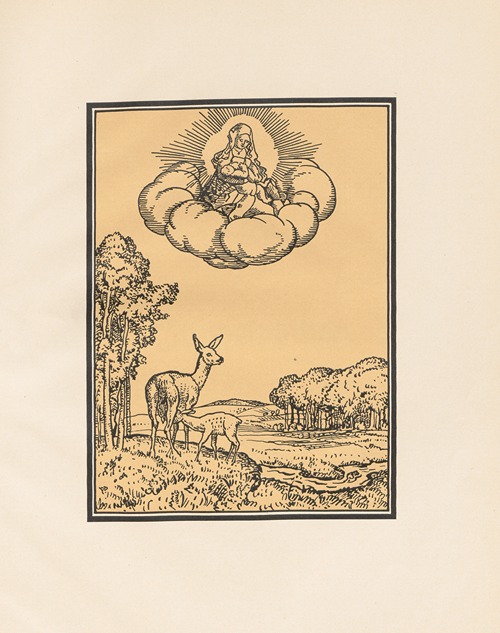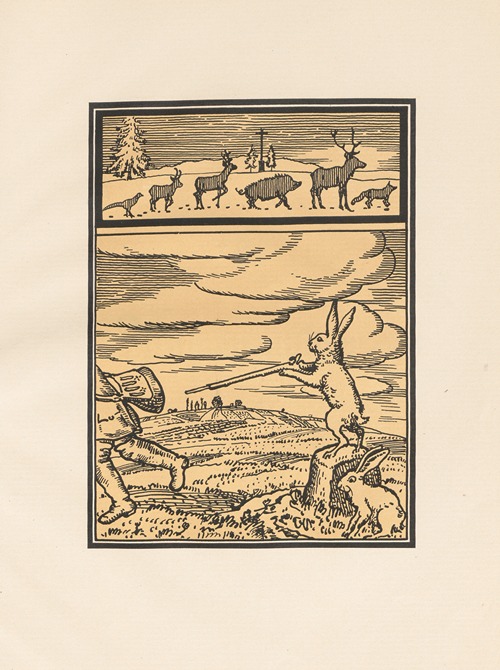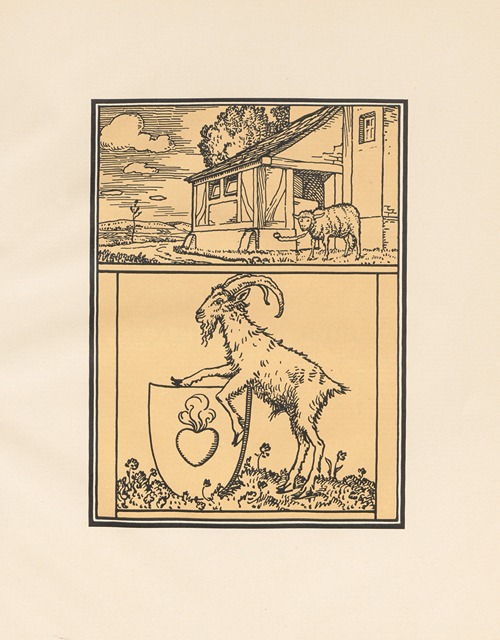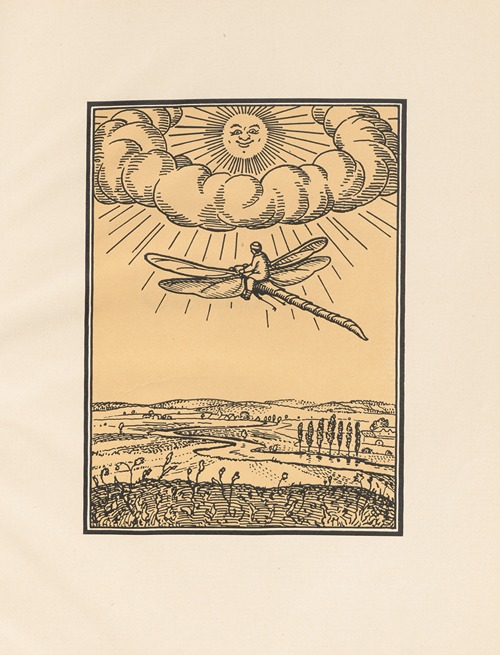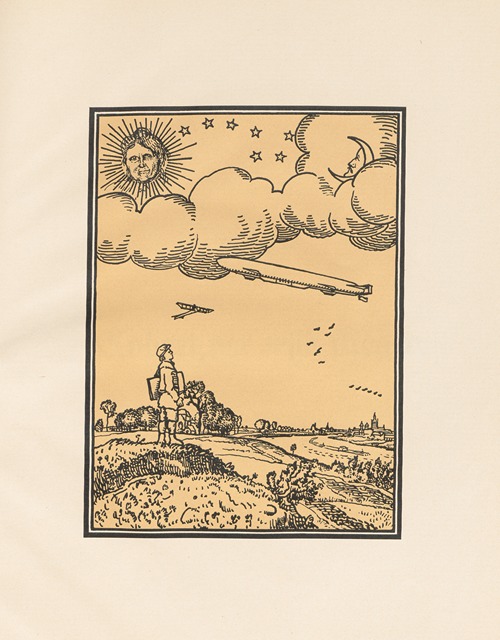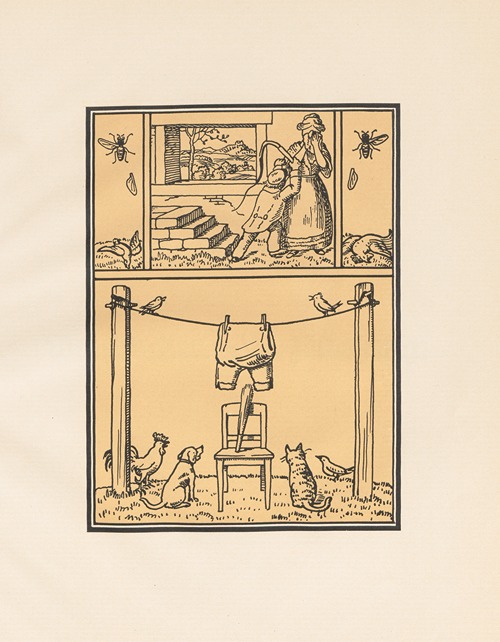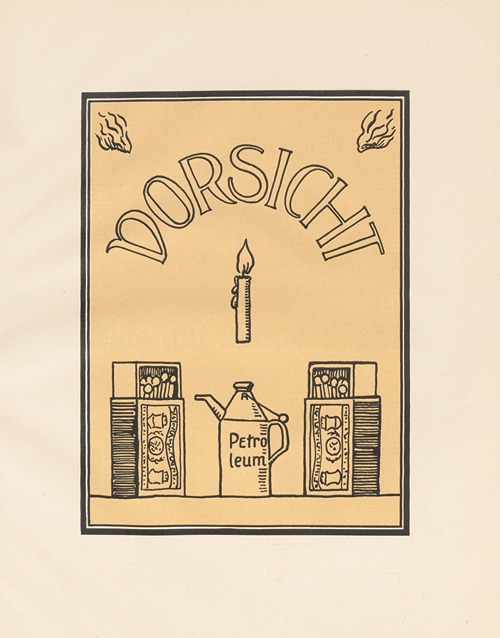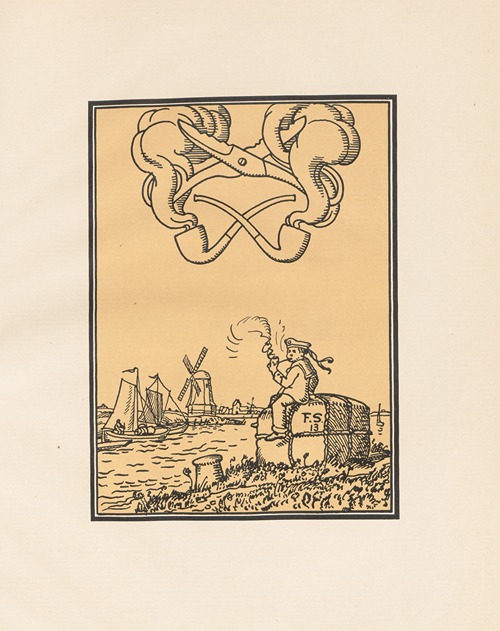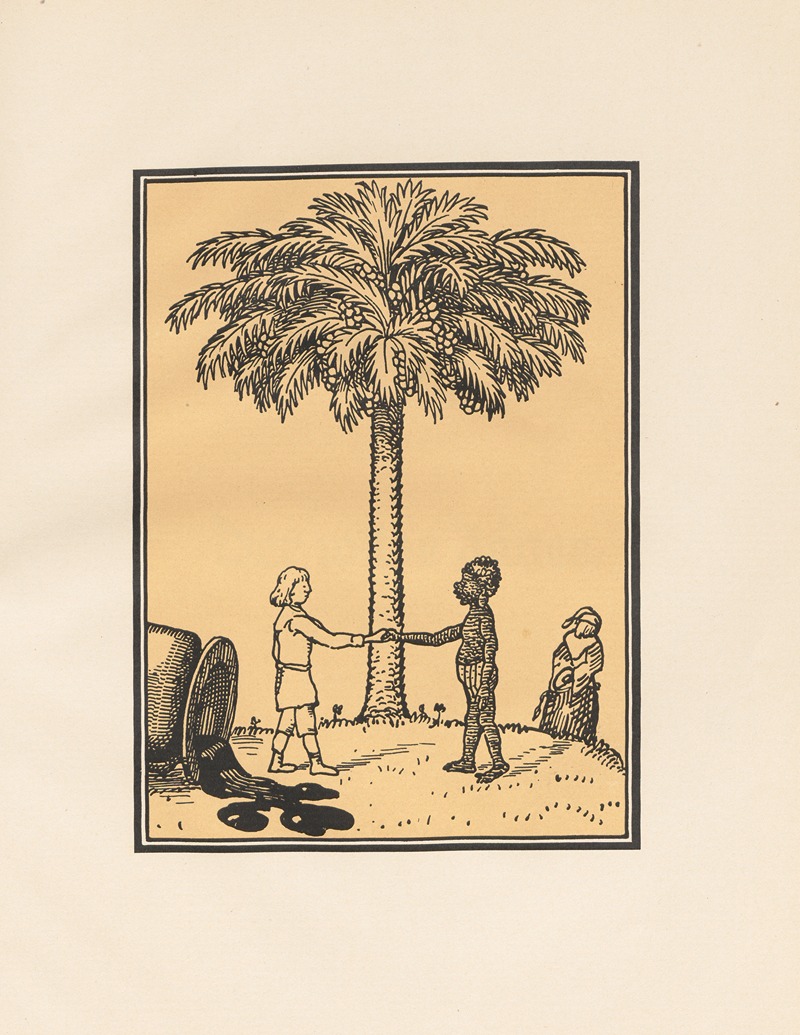
Fried Stern was a German landscape painter, graphic artist, writer and radio author.
Fried Stern grew up as the fifth of six children in a Jewish - Christian home in Frankfurt am Main. His father came from a Jewish family in Lower Franconia, his mother came from the Frankfurt craftsmen's milieu. While still at school he also attended the Städelschule and received art lessons from Heinrich Hasselhorst and Karl von Pidoll. After Stern unsuccessfully applied for an art scholarship from a foundation, he began an apprenticeship as a lithographer and later in a wine shop, but dropped out of both training courses within a short time.
As a freelance artist, he primarily dealt with landscape depictions. Several study trips took him to Holland, England and France.
Fried Stern's work as an author began in 1913 with the publication of From the Diary of Robinson Crusoe. Verses and pictures and continued in 1914 in The Struwwelpeter of Today: A Picture Book for the Greats by Fried Stern. The reception of the latter is seen as an early critical engagement with Heinrich Hoffmann's Struwwelpeter. During the First World War he was a soldier and was deployed in Romania. After a war injury in 1917, he was taken to a private hospital in Frankfurt am Main, where he processed his memories in the work Home and Fatherland. From June 1924 to December 1932, as an author and narrator, he created numerous programs for the newly registered Südwestdeutsche Rundfunkdienst AG.
Fried Stern's last known place of residence in Frankfurt am Main was in 1933 at Neuhofstrasse 33 I in the Nordend district of Frankfurt. During the Nazi era, he was persecuted by the National Socialists because of his Jewish descent on his father's side. His whereabouts between 1933 and 1937 are unknown. From June 1937 Stern was registered in the Netherlands, initially in Amsterdam, later in Schoorl and Aardenburg. From the end of January 1940 to March 1942 he was imprisoned in the Westerbork transit camp. He did not die there, as was previously assumed; rather, he was released from the camp in 1942. After further stays in Amsterdam and Hilversum, his trace was lost in the Netherlands in 1944.
